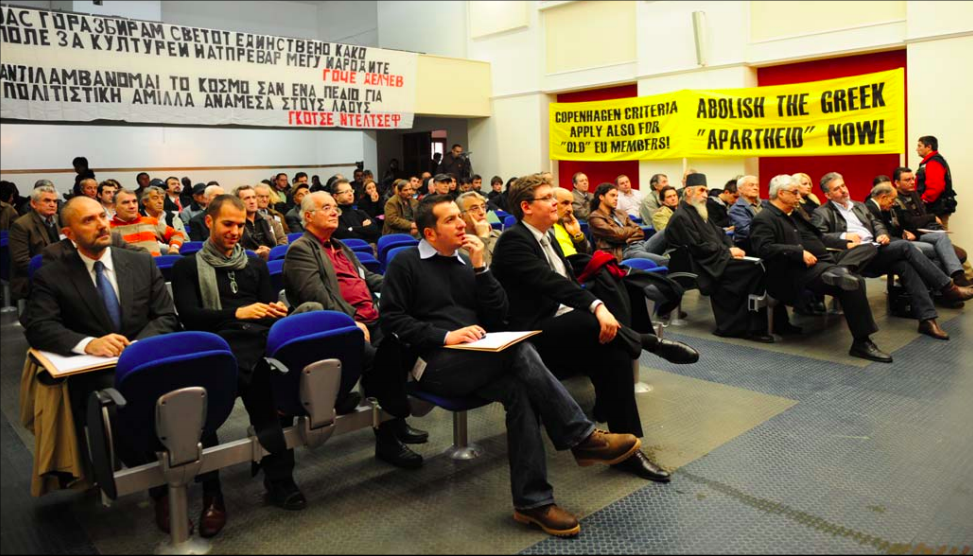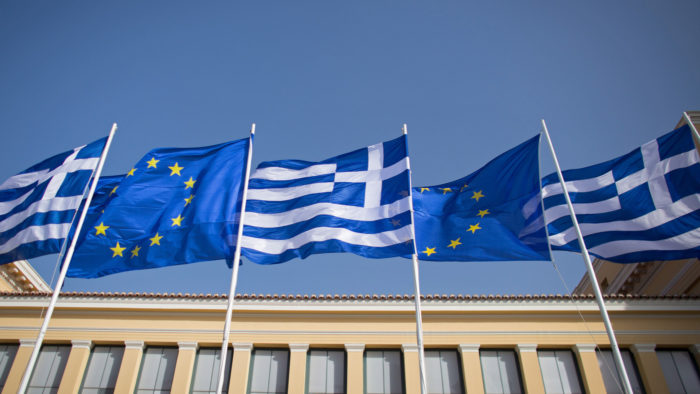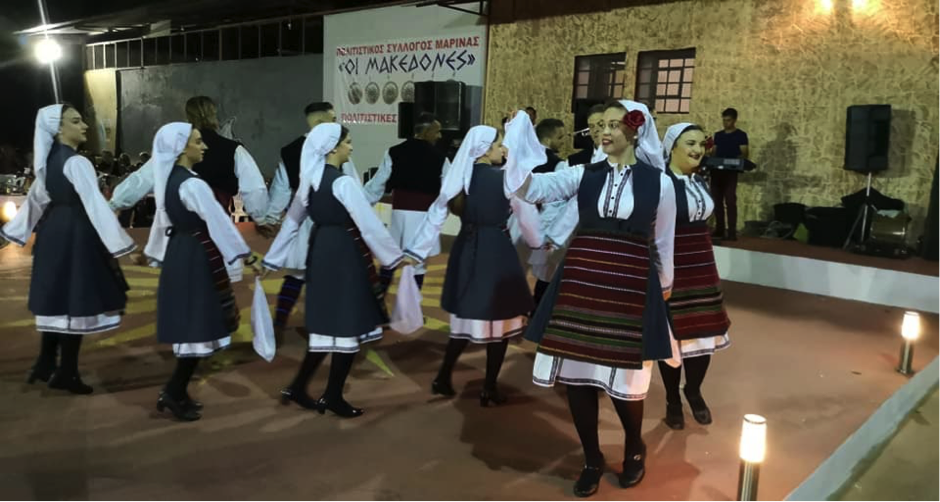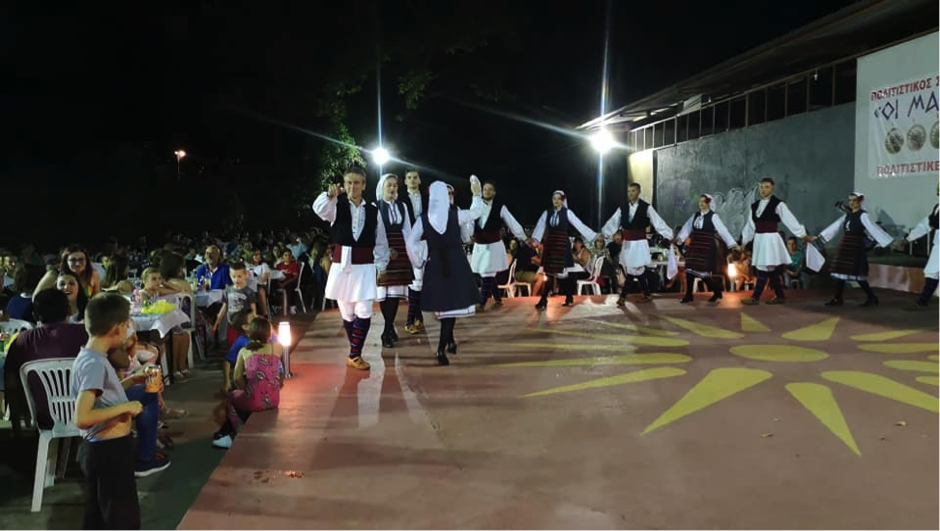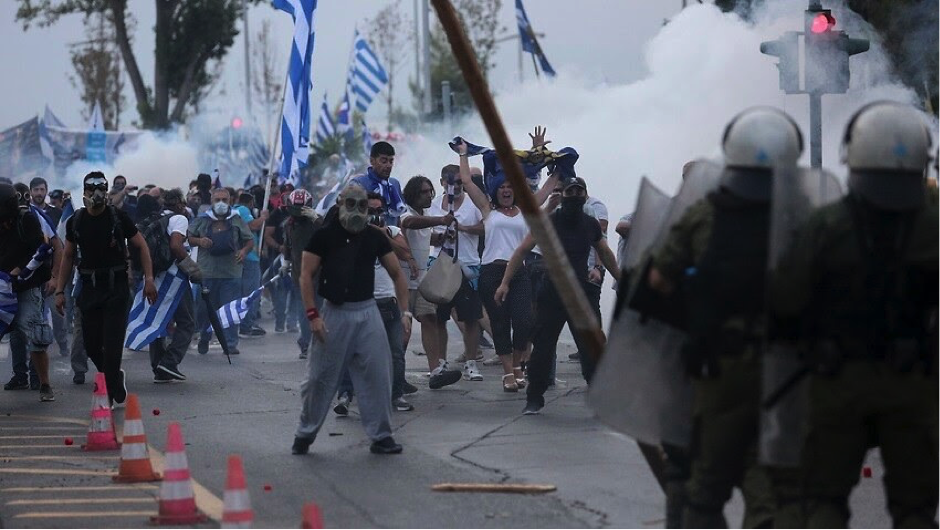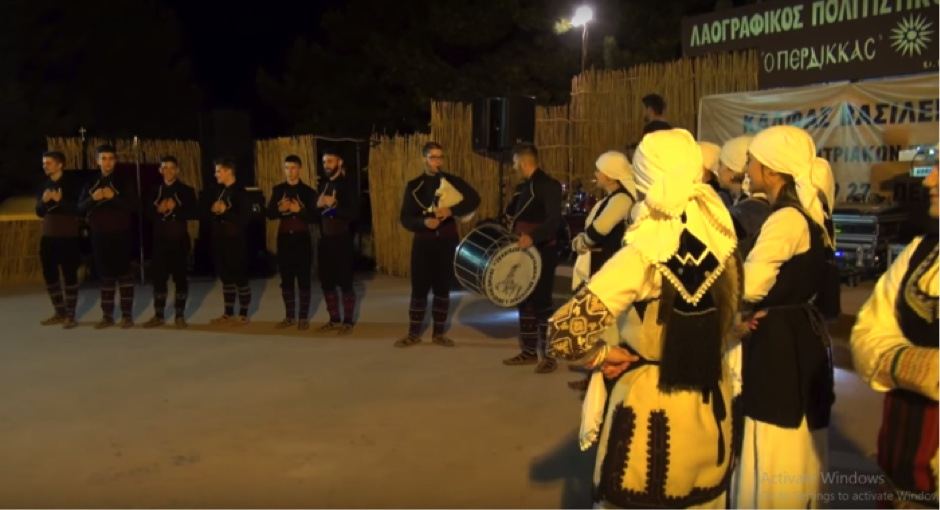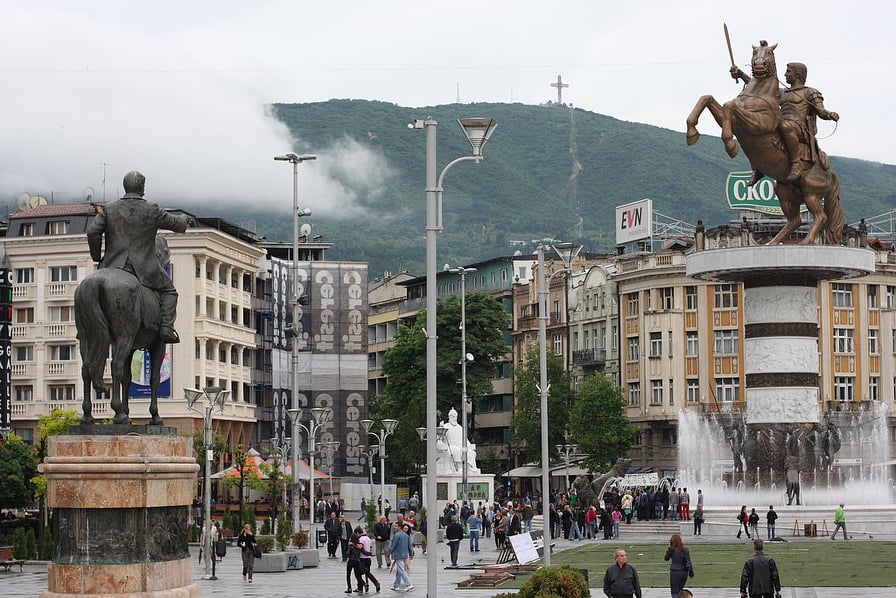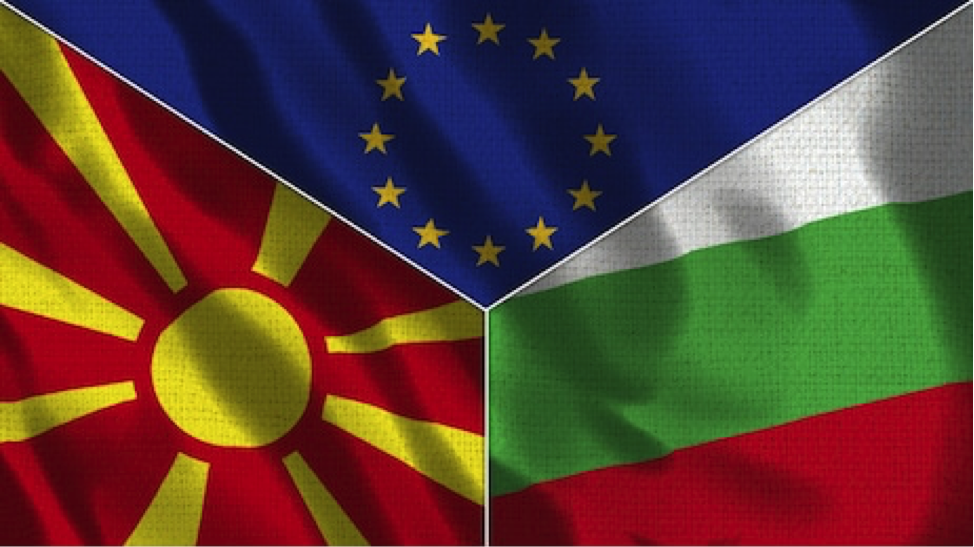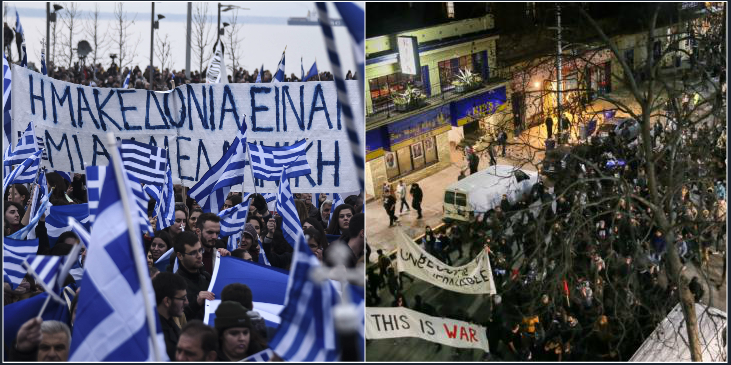The first part of the ‘YOU DON’T EXIST’ series focused on the experiences of young Macedonians living in Greece. The second part of this series will focus on the activism of Macedonians living in Greece. Activists pursuing the recognition of Macedonian minority rights in Greece continue to be subjected to discrimination and xenophobic rhetoric by the media, state, Greek Orthodox Church and the broader society.
In the second part of ‘YOU DON’T EXIST’, a Macedonian activist from Greece will be interviewed by Generation M’s Melbourne Representative, Elena Sekulovska, on issues concerning the Macedonian minority in Greece. In order to protect the identity of this individual, and the possibility of them being targets of further xenophobic rhetoric, their identity has been disclosed as Anonymous C.
Anonymous C, Negush
1. Thank you for agreeing to do this interview. According to you, how many people have Macedonian origins in northern Greece?
Since the annexation of about half of the territory of Macedonia in 1912-13, there have been no censuses of ethnic groups in Greece. Thus, the data on the Macedonian population in Greece can only be approximate and based on old records of the Ottoman Empire administration and some non-official sources. For instance, according to the Hüseyin Hilmi Pasha census of the Ottoman lands of Europe in 1904, conducted in the Macedonian vilayets (districts) of Salonica and Bitola, it was found that, in the Vilayet of Salonica, 373,227 people belonged to the Greek Patriarchate and 207,317 people belonged to the Bulgarian Exarchate. In the Vilayet of Bitola, 261,283 people belonged to the Greek Patriarchate and 178,412 people belonged to the Bulgarian Exarchate. The above numbers give a total of 634,510 Greek Orthodox Patriarchate followers, of whom almost 250,000 declared themselves as ‘Bulgarian speakers’.* If we add these 250,000 Greek Patriarchate followers with the Slavic mother tongue to the 385,729 faithfuls of the Exarchate, we will see in this Ottoman census that approximately 635,729 Macedonians were living in a roughly larger area of what is now the Aegean part of Macedonia.
However, after 100 years of ethnic cleansing and cultural genocide conducted by the Greek authorities against the Macedonian population, we can only suppose that roughly 100,000 Macedonians are left in Greece. Most of these Macedonians keep some memory of their ethnic identity and speak in Macedonian dialects, although they do not have a separate consciousness than that of the Greek nation. But as we can notice, in the last 10 years, some thousands of Macedonians, even ones very young in age, are definitely becoming more aware of their Macedonian ethnic identity. It will take a lot of work and good organization to protect and promote this revival of the Macedonian national identity in Greece in many fields, like language teaching, local history recording, safeguarding of Macedonian cultural heritage, etc.
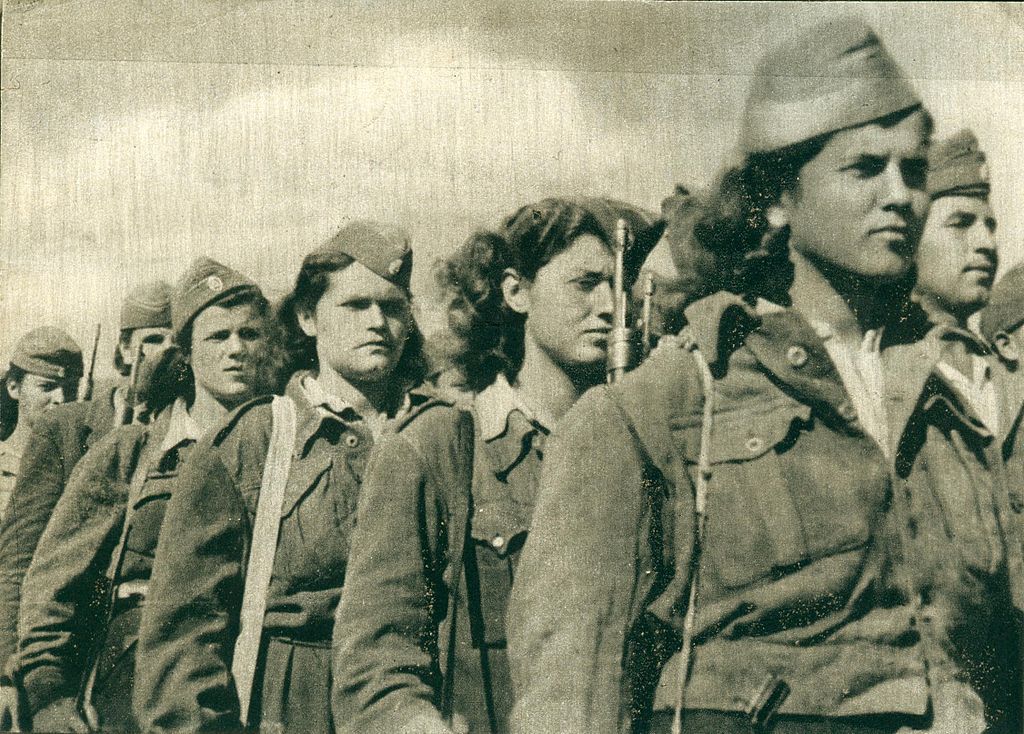
2. How are Macedonian activists trying to push for the recognition of the Macedonian minority and their ability to express themselves politically, linguistically and culturally?
Macedonian activists should not push for the ‘recognition’ of the Macedonian minority specifically, they should push for the ratification and implementation of a framework of laws and treaties that gives the minorities — all minorities, being ethnic/national, linguistic and/or religious — the right to freely develop and promote their own identity, without any repression or discrimination by the state. We, the Macedonians in Greece, do not need to be recognized for what we are and declare we are. What we really need is the protection of our rights by laws that Greece needs to ratify and implement, like, for instance, the European Charter for the Protection of National Minorities which our country had signed in 1997 but never ratified to become a Greek law. All our efforts should be focused on this issue, nationally and internationally, and in collaboration with other minority groups in other countries.
3. What is the response of the Greek state and the Greek society more broadly, to Macedonian activists who try to push for the recognition of the Macedonian minority, and for them to be able to express themselves?
The new policy of the Greek state now is to simply ignore all of the formal requests of the Macedonian activists. While in the past, any of our formal requests were rejected immediately, by not even accepting any of our applications, with the excuse that “a Macedonian identity except the Greek one does not exist”. Now that the Prespa Agreement was ratified by Greece, this excuse cannot be used anymore. As a result, we can now formally apply to the Greek state institutions as Macedonians, yet still, we never get an answer to our requests. We will need to find a solution to this problem by filing a legal case to the Greek courts of Justice for each case, but this is an expensive way to claim our rights and the procedure takes a very long time. As for the Greek society, the larger part of it ignores our situation, because the Greek media is manipulating the public opinion by presenting any activity of minority groups in Greece as a danger to the public security. If the Greek people had the possibility to know our real situation, the majority would have a positive attitude toward us, for sure.
4. In your opinion, why doesn’t the Greek state, a democratic country and a member of the European Union, recognise the Macedonian minority and grant them the right to express themselves?
It is not just the Greek state in the EU that is not willing to grant any minority rights to its citizens. For example, France also has the same policy, although in France minorities are not repressed like they are in Greece. There are 50 million people belonging to ethnic minorities in all the 27 EU countries, who struggle for protection rights at EU level. However, the EU Commission that takes the final decisions on laws and directives is negative on such issues, the reason being that some states will use the right of veto to such decisions. The paradox here is that issues on minority rights usually get a large majority approval in the EU parliament voting procedure, but the EU Commission blocks them due to the veto power that each EU member state has on Prime Minister level. Thus, the veto of one person representing his/her country can block the will of hundreds of EU members of EU Parliament, democratically elected by the EU citizens. The Lisbon Treaty signed and ratified by all EU member states in 2009, foresees a change of the decision-making procedure in the EU, giving more powers to the EU Parliament and limiting the veto power to very few issues. This procedure on decision-making in the EU is expected to start after 2022. Hopefully, things will improve for all minorities in the near future, but this will not be automatic in every country. Minorities must be ready and organized to claim their rights from EU institutions, if a member state is reluctant to implement EU laws on minority rights.
5. How can the Macedonian diaspora help the Macedonian activists and the Macedonian minority more broadly?
The Macedonian diaspora must be in a continuous dialogue with the Macedonian activists, trying to understand the issues the Macedonian minority faces in each one of the countries that they live in. It should have a closer look at the real problems that Macedonians as a minority face in preserving and promoting their Macedonian national identity. They should help them in their projects on education such as Macedonian language classes, sponsoring meetings of representatives of Macedonian cultural associations of all the Macedonian minorities, in order for them to exchange information on good practices to promote Macedonian culture, and many other activities that will give the possibility to the younger Macedonian generation to come together. It would also be good for the diaspora to have a fundraiser for specific cases of legal procedures that some Macedonian minority organizations or activists undertake against state abuse. Unfortunately, this occurs often, but most Macedonians don’t have the financial means to undertake such expensive legal procedures themselves.
6. Is there anything else that you would like to add?
I would like to suggest to the Macedonians to get more realistic on many issues that concern the Macedonian nation today. Our past as a nation was a dramatic and a painful one but we need to have a vision of a bright future for our people and we need to work hard on this together, having always a positive attitude for any challenge we face. We need to take the best of any situation we find ourselves in, leaving all negativity behind.
*In the Ottoman Empire, ethnicity was not considered as defining identity, religious affiliation was. In official records, Macedonians were referred to as ‘Bulgarian’ and their language as ‘Bulgarian’ due to the fact that most Macedonians were subjects of the Bulgarian Exarchate Church. [1] Similarly, Macedonians who belonged to the Greek Patriarchate were referred to as ‘Greeks’. [1] The Macedonian Church was abolished in 1767, hence why they were subject to the Bulgarian and Greek Churches.[2]
Sources:
[1] Blazhe Ristovski, Macedonia and the Macedonian People, Vienna: SIMAG Holding, 1995, 127-155.
[2] Иван Снегаров, История на Охридската архиепископия-патриаршия. От падането ѝ под турците до нейното унищожение (1294 – 1767 г.), София: Печатница П. Глушковъ, 1932, VI.
—
Any opinions or views expressed in articles or other pieces appearing in UMD Voice are those of the author alone and are not necessarily those of the United Macedonian Diaspora and its young leaders’ program Generation M; the appearance of any such opinions or views in UMD Voice is not and should not be considered to be an endorsement by or approval of the same by UMD and Generation M.

